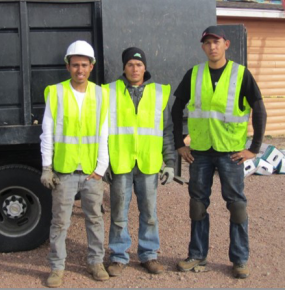AI/AN Workers
There were an approximately 2.6 million American Indian and Alaska Native (AI/AN) workers in the U.S. in 2020, accounting for nearly 2% of the total workforce. The most common industries for AI/AN workers are shown in the table below.
| Industry Sector | Number of Workers |
| Agriculture, Forestry, and Fishing | 58,857 |
| Construction | 233,489 |
| Healthcare and Social Assistance | 363,046 |
| Manufacturing | 236,863 |
| Mining and Oil and Gas Extraction | 24,040 |
| Public Safety and Services | 1,174,272 |
| Transportation, Warehousing, and Utilities | 166,970 |
| Wholesale and Retail Trade | 402,590 |
| Total | 2,660,127 |
The Employed Labor Force Query System is based on data from the Bureau of Labor Statistics Current Population Survey, which uses Bureau of Census Industry Codes. These codes cannot be directly matched with the North American Industry Classification System, which organizes the current NORA sectors. As a result, the table includes the population for the NORA sector, Oil and Gas Extraction, in the Mining category. Similarly, it includes the population for the Public Safety sector in the Services category.
Centers for Disease Control and Prevention, National Institute for Occupational Safety and Health (CDC/NIOSH). 2020. Employed Labor Force query system. Morgantown: National Institute for Occupational Safety and Health. Available from: https://wwwn.cdc.gov/Wisards/cps/cps_estimates.aspx (Accessed January 22, 2021).
According to the Bureau of Labor Statistics, 352 AI/AN workers were killed on-the-job during 2011 – 2020, an average of 35 fatalities each year.[1] The industries with the most fatalities were construction (83), agriculture/forestry/fishing (49), and transportation and warehousing (37).
Occupational safety and health in tribal communities is a topic that requires additional attention, and national data on occupational injuries, illnesses and fatalities among AI/AN workers are scarce. There is still a need for improved data to better understand and address the work-related risks facing AI/AN workers. Few published studies have specifically looked at occupational safety and health risks among AI/AN workers. To address this knowledge gap, NIOSH recently published the American Indian and Alaska Native Worker Safety and Health Strategic Plan

